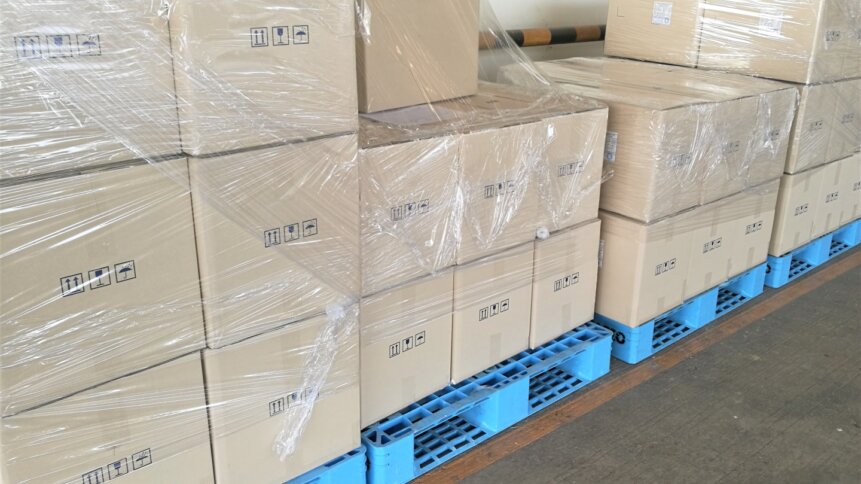Supply chain transparency on the agenda at COP27

The global pandemic, the war in Ukraine, and a 400 m-long ship named Ever Given getting stuck in the Suez Canal have made a strong case for supply chain resiliency. But that’s not the only talking point when it comes to sourcing components and materials. Supply chain transparency is a key part of the global picture too, with multiple touch points. And that’s why it’s sure to be on the minds of many attendees at this month’s COP27 meeting being held at Sharm EL Sheikh, Egypt.
Pushing supply chain transparency up the agenda is the rise of Environmental, Social, and corporate Governance (ESG) as a strategic force in global business. Benchmarking by Climate Action 100+ shows that corporate net-zero commitments are rising. In March 2021, a quarter of firms surveyed expressed ambitions to reach net-zero greenhouse gas emissions by 2050. And last month, that fraction had jumped to more than half with 51% of companies making the pledge.
Carbon emissions lever
Sustainable procurement gives firms a lever to pull on to lower their carbon emissions, but only if they can be sure that reality matches expectations. And that’s where supply chain transparency fits in. Plus, there are profits to be made. Investment bank UBS noted earlier this year that companies with robust traceability systems in place experienced a net profit uplift ranging from 3% to 7%.
Being able to verify progress on ESG strategies, puts firms on a stronger foundation with both investors and customers. Shoppers who can see clear evidence of sustainable procurement may choose a firm’s product over a competitor’s offering. And the cost to firms of raising capital for funding business growth could be less if companies can demonstrate deep knowledge of their supply chains. Such detailed information breeds confidence in company operations.
READ NEXT

AI digests supply chain risk
Of course, there’s nothing groundbreaking about voicing the need for supply chain transparency. But what’s changed is the confluence of finance, business, policy, and technology. There are signs that companies not only recognize the need to get serious about their supply chains, but view the task as one that is achievable. Climate change is motivating the development of a wide range of business solutions. More than 11,000 companies, financial institutions, and other non-state actors have signed up to the United Nations ‘Race to Zero’ campaign, which aims to inspire a healthy, resilient, zero-carbon recovery.
Implementation at scale
In fact, top of the list of targets at COP27 is a desire to shift from ‘pledging to implementation at scale’. This plays into widespread recognition that the planet is signaling loudly the need to accelerate the adoption of net-zero practices. At the same time, the target also recognizes the growing pool of expertise and success stories that can be replicated.
Bain and Company – a global consultancy firm – has badged ‘traceability’ as ‘the next supply chain revolution’, echoing that the rewards go beyond sustainability alone. Firms that get on board with supply chain traceability have the opportunity to raise efficiency, build resilience and boost their competitiveness too. Hernan Saenz, a partner at the consultancy, and his co-authors write that technology is already available to trace each raw material that goes into a product and follow how a product is used and where it is discarded. “It allows companies to redefine the boundary of operational excellence and set aspirational new goals,” they add.
Returning to the example of the Ever Given, which blocked a major international supply chain artery – companies that had awareness of their supply origins would have information ahead of time. And that data could make the difference between securing alternative materials or being too slow to respond and discovering that competitors had got their first.
In terms of pinch points, making the jump from a supply chain pilot that has successfully demonstrated value to a large-scale traceability program is one of the major barriers facing firms, according to Bain and Company’s analysis. We’ve already highlighted the value that supply chain data holds and this means that digital platforms need to be designed for security and privacy. Supply chain information reveals a great deal about companies’ intentions – for example, by giving indications of a new product launch.
Cliff Henson and Yorke Rhodes III, supply chain experts based at Microsoft, build the case for blockchain implementation as a mechanism for ‘illuminating the supply chain’. According to their write-up on the topic, Microsoft’s blockchain platform has the capacity to uncover tens of millions of dollars in hidden costs and improve end-to-end item-level traceability.
The authors point out that while enterprise resource planning tools may work well for two-party relationships – for example, between a company and its clients – their utility can drop off for tiered structured such as complex supply chains. To counter this, and maintain visibility at all stages of the operation, companies have the option to explore blockchain implementations such as Microsoft’s platform. Cementing the concept is the idea that a digital ledger allows all parties to view, monitor, and contribute to the data in a way that is traceable and immutable.









